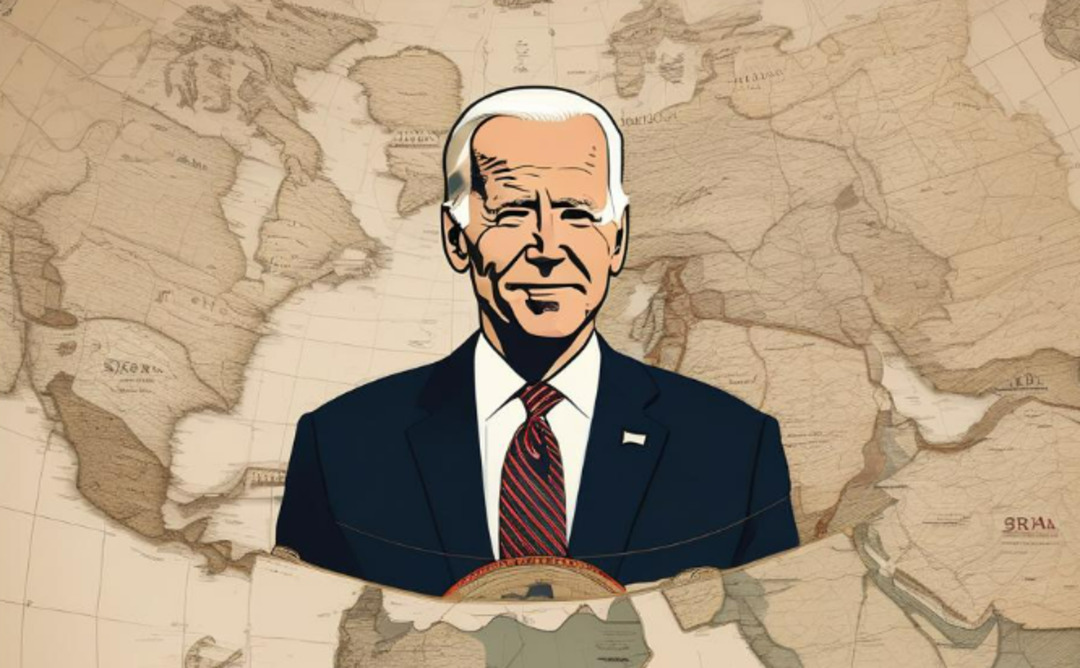-
Biden Eases Humanitarian Aid Restrictions to Syria Without Lifting Sanctions

The Wall Street Journal reported that the Biden administration is preparing to announce on Monday the easing of restrictions on humanitarian aid to Syria, as a step aimed at accelerating the transfer of essential supplies without lifting sanctions that hinder other aid directed to the new government in Damascus.
The newspaper stated that this decision reflects "the White House's concern about the possibility of lifting comprehensive sanctions imposed on Syria, until the direction taken by the new leadership, which includes a group classified by the United States as a terrorist organization, becomes clear."
According to the newspaper, based on statements from officials, the limited step adopted by the administration over the weekend will allow the Treasury Department to issue exemptions for humanitarian groups and companies providing essential services, such as water, electricity, and medical supplies.
Officials clarified that this exemption, which was initially available for six months, will enable aid suppliers to avoid the need to obtain a license for each individual case; however, it will come with conditions to ensure that Syria does not misuse the supplies.
The newspaper noted that the United States remains cautious about lifting the sanctions barrier imposed on the Syrian regime, in an effort to secure guarantees that Damascus will not backtrack on its commitments to protect the rights of women and religious and ethnic minorities in the country.
In a statement last December, following the flight of Syrian President Bashar al-Assad from the country, Biden pointed out that "some of the rebel groups that toppled Assad have a troubling history of terrorism and human rights violations." He added, "They may say what is right today, but when they take on more responsibility, we will not only evaluate their words but also their actions."
The newspaper indicates that with the Biden administration nearing its end, decisions regarding sanctions and whether to recognize the new Syrian government may fall to the elected President Donald Trump.
Moreover, mid-level U.S. officials have met with Syrian leadership, as French Foreign Minister Jean-Yves Le Drian and German Foreign Minister Annalena Baerbock visited Damascus last Friday.
After her meeting with Syrian Deputy Foreign Minister Faisal Mikdad, Baerbock emphasized the need to involve women and Kurds in the country’s transition process, warning against the use of European funds to "build new Islamic structures."
The German official also stated that it is too early for European countries to lift sanctions on Syria, but added: "Recent weeks have shown how much hope exists here in Syria that the future will be in favor of freedom."
Both the United States and its allies in Europe and the Middle East agree that Syria urgently needs more aid, including funds necessary for the reconstruction of the country's destroyed infrastructure.
The European Union is also discussing steps that can be taken to facilitate the flow of aid to Syria, which is currently hindered by sanctions.
Tags
You May Also Like
Popular Posts
Caricature
BENEFIT Sponsors BuildHer...
- April 23, 2025
BENEFIT, the Kingdom’s innovator and leading company in Fintech and electronic financial transactions service, has sponsored the BuildHer CityHack 2025 Hackathon, a two-day event spearheaded by the College of Engineering and Technology at the Royal University for Women (RUW).
Aimed at secondary school students, the event brought together a distinguished group of academic professionals and technology experts to mentor and inspire young participants.
More than 100 high school students from across the Kingdom of Bahrain took part in the hackathon, which featured an intensive programme of training workshops and hands-on sessions. These activities were tailored to enhance participants’ critical thinking, collaborative problem-solving, and team-building capabilities, while also encouraging the development of practical and sustainable solutions to contemporary challenges using modern technological tools.
BENEFIT’s Chief Executive Mr. Abdulwahed AlJanahi, commented: “Our support for this educational hackathon reflects our long-term strategic vision to nurture the talents of emerging national youth and empower the next generation of accomplished female leaders in technology. By fostering creativity and innovation, we aim to contribute meaningfully to Bahrain’s comprehensive development goals and align with the aspirations outlined in the Kingdom’s Vision 2030—an ambition in which BENEFIT plays a central role.”
Professor Riyadh Yousif Hamzah, President of the Royal University for Women, commented: “This initiative reflects our commitment to advancing women in STEM fields. We're cultivating a generation of creative, solution-driven female leaders who will drive national development. Our partnership with BENEFIT exemplifies the powerful synergy between academia and private sector in supporting educational innovation.”
Hanan Abdulla Hasan, Senior Manager, PR & Communication at BENEFIT, said: “We are honoured to collaborate with RUW in supporting this remarkable technology-focused event. It highlights our commitment to social responsibility, and our ongoing efforts to enhance the digital and innovation capabilities of young Bahraini women and foster their ability to harness technological tools in the service of a smarter, more sustainable future.”
For his part, Dr. Humam ElAgha, Acting Dean of the College of Engineering and Technology at the University, said: “BuildHer CityHack 2025 embodies our hands-on approach to education. By tackling real-world problems through creative thinking and sustainable solutions, we're preparing women to thrive in the knowledge economy – a cornerstone of the University's vision.”
opinion
Report
ads
Newsletter
Subscribe to our mailing list to get the new updates!






















